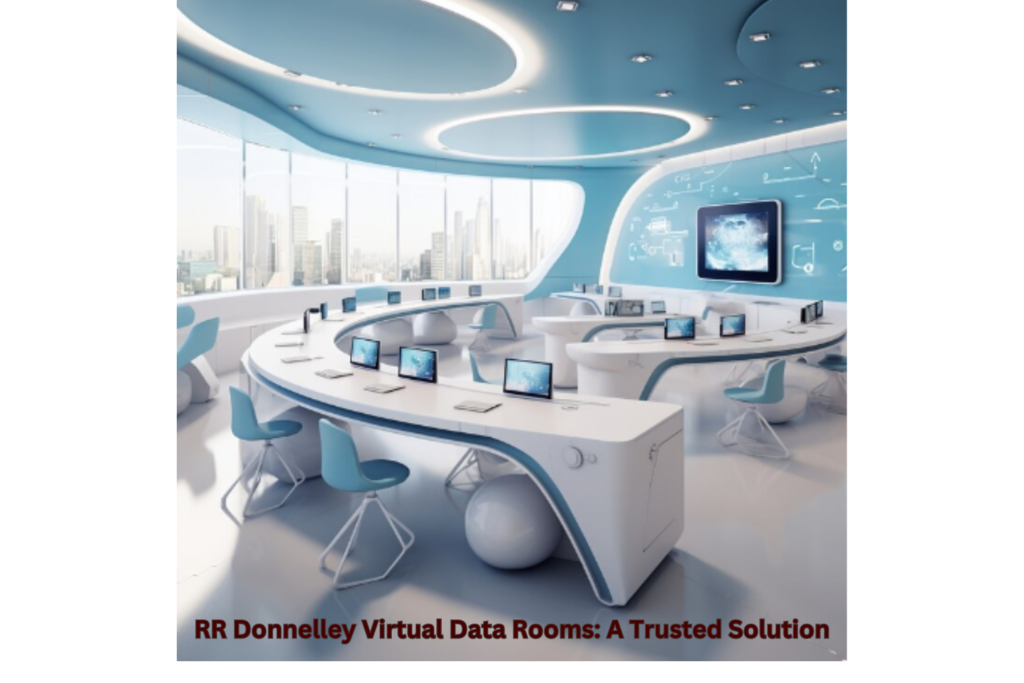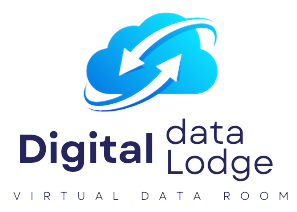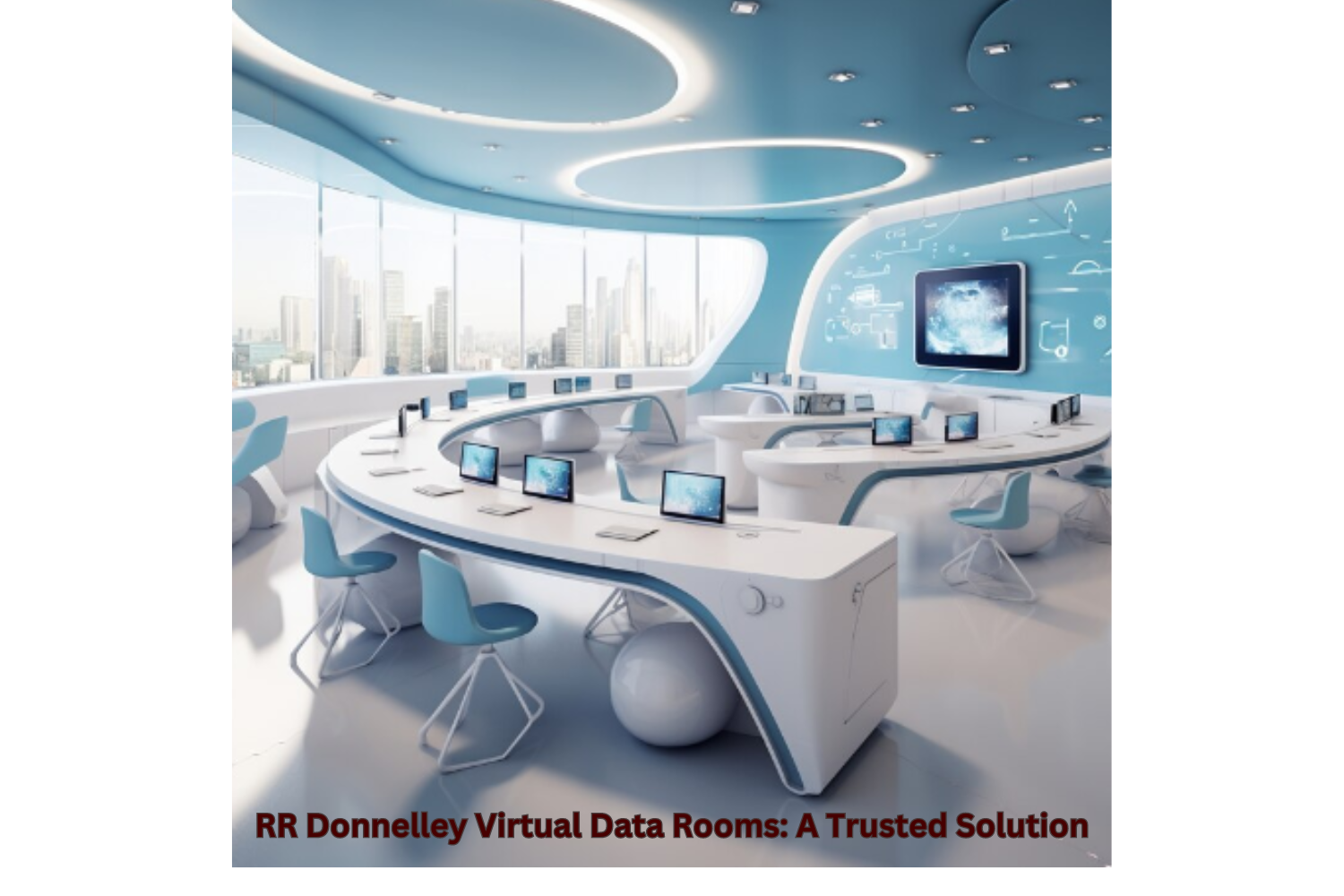The need for streamlined, safe, and effective document management and data exchange has never been greater in the fast-paced business environment of today. The success and security of complicated transactions, such as mergers and acquisitions, due diligence, or legal proceedings, can be greatly impacted by an organization’s choice of a trustworthy Virtual Data Room (VDR).

Virtual Data Room (VDR): The Ultimate Guide
- M&A and corporate finance’s unsung heroes are virtual data rooms.
- They make it possible for people working in various fields, including investment bankers, to interchange and store large amounts of data, as well as to store, share, organize, and comprehend it.
- Virtual data rooms, like FirmRoom, have seen a resurgence in use as project management instruments in the M&A and other domains in recent years.
- These solutions now help M&A organizations make the process more intelligent, collaborative, and efficient, rather than just being clouds for storing data.
What is a Virtual Data Room (VDR)?
A virtual data room, also known as an “electronic data room” or “VDR,” is a safe online location that serves as a repository for corporate documents. It enables users to securely share vital business information with clients, investors, and company executives in a controlled setting.
The terms “virtual deal room,” “data room,” and “private virtual room” are also possible, and they all have the same meaning.
What is a Virtual Data Room Used for?
- VDRs improve due diligence procedures for businesses and minimize the amount of paper labor required, which lowers overhead, mess, and waste.
- A corporation can use a VDR to exchange private information with outside parties.
- For this data to effectively convey its owners’ message to a third party, it must be formatted appropriately.
- It must be responsive for the third party to analyze the data and make requests and notes automatically communicated to the data owner.
- Its safety and the preservation of its integrity must come first.
The following are a few typical applications for the top virtual data rooms:
- Safekeeping of priceless personal information
- Data exchange between internal and external stakeholders in a secure manner
- Project management tracking (based on updates and document exchange)
- keeping track of requests, revisions, and sharing for specific documents
- giving a broad summary of the folder and document access hierarchies
Where Are Virtual Data Rooms Used?
- The demand for high-quality data is the only thing all businesses in the modern business climate have in common.
- Retail accounts for less than 30% of Amazon’s operational income; the majority comes from its data services or AWS.
- Moreover, businesses have only just begun to tap into the full potential of data in the workplace.
Companies utilize data rooms for a variety of reasons, such as:
- M&A: Thousands of papers are stored and shared with many teams, including sellers and purchasers, in virtual deal rooms throughout the due diligence phase of M&A.
- When soliciting money, fundraising companies may divulge private corporate information to potential investors. After that, potential investors can access files, post their information, and ask questions.
- Fundraisers can study procedures and specific investor behavior by generating reports on users who entered the data room, tracking which documents were seen and how long each page or sheet was viewed.
- To learn more, consider why contemporary businesses utilize data rooms for funding.
Strategic Alliances
Through virtual data rooms, prospective partners can provide each other with critical files and information about one another. Additionally, they can specify which rights to allow access to specific files.
Communications on Boards
Within virtual data rooms, teams can safely discuss all facets of a deal’s lifetime. Teams can discreetly invite other users to speak with them in the room.
Safe File Exchange
Data can be stored in virtual data rooms indefinitely. This covers many file formats, including presentations, movies, documents, etc.
Advising
Consultancy firms need a controlled environment to ensure privacy and confidentiality, which a VDR efficiently manages.
Production
VDRs are used by manufacturing businesses to exchange product data and new designs.
Who Uses Virtual Data Rooms – Common Use Cases
Virtual data rooms are helpful to practically everyone thinking about doing a financial transaction, capital raising, initial public offering, or other commercial agreement.
Let’s examine and discuss a few of the industries where VDRs are being used:
Innovation
The tech sector is the strongest supporter of virtual data rooms of all. Through VDRs, giant tech corporations in the world may communicate information across teams located all over the world, promoting the exchange of ideas within the organizations.
Financial Investments
One of the most frequent users of virtual data rooms is investment bankers. Large volumes of information sharing may be required for investment banking procedures like IPOs, capital raising, and M&A, for which the VDR is perfectly appropriate.
Organizational Development
Companies should look for ways to organize the data to work for them rather than against them since there is a growing amount of data available to build business strategies. In this process, a VDR is quite helpful since it enables businesses to spot patterns in massive data that they might have missed otherwise.
Venture Capital and Private Equity
The organization is necessary because private equity and venture capital organizations evaluate multiple deals concurrently, bringing mountains of data into the organization. Regardless of how many deals they have, it makes sense that many of these businesses rely on VDRs to safely arrange this data and keep them on top of the process.
The Legal Sector
The legal business is the most infamous for producing enormous amounts of paperwork. However, sharing documents electronically is altering this. Virtual data rooms have replaced filing cabinets, enabling more efficient document sharing for judicial processes.
Health Sciences
In the life sciences sector, most businesses are only as good as their intellectual property. This implies that the most outstanding levels of data security must be maintained during the R&D process. Virtual data rooms are used by life science companies for storing patient files, licensing intellectual property, and managing HIPAA compliance, among other purposes.
Beginnings
Data rooms assist startups in analyzing interest during conversations with potential investors. Startups can gain a better understanding of the amount of engagement from investors by using virtual demo rooms (VDRs) to see which investors spend the most time reading particular company papers and how long they spend in a room.
Auditing and accounting firms
Businesses can use a secure portal to communicate audits and reports with their clients.
Commercial representatives
A VDR offers a convenient way for deal and closure information to be shared.
Danger capital
aids in the disclosure of financial and investment management documents.
Moveable assets
Deals involving land and housing necessitate extensive paperwork transfers. Regardless of the immovable property industry you’re looking at, a VDR is useful.
Comparing Data Room Providers
- Businesses must look for the VDR service that best meets their requirements, regardless of the industry. Upon further evaluation, many discover that their demands evolve with time.
- Before uploading an excessive amount of data to the server and complicating the transition to a different VDR, it becomes sense to take advantage of free trials offered by data rooms to determine which one best suits your needs.
- You will be able to compare the minor variations in each data room’s features, functionalities, interface, convenience of use, and charges thanks to this.
- Businesses typically search for suppliers with particular feature sets, cost ranges, security protocols, and user-friendliness that they can test out during a free trial, which is something that the majority of suppliers in the market offer.
- There are various ways to evaluate the offerings of each data room supplier. Listed below are:
- Examine the data on their website.
- Look up provider evaluations on review portals.
- Check employee reviews for the business.
- Overall, the best recommendation is to use a free trial to give each data room provider you prefer a visual taste.
- Use this virtual data room comparison, which contrasts everything one might want in a data room, to save yourself some time.
Are Data Rooms Secure?
- Because VDRs are thought to be very safe, they are frequently referred to as “secure data rooms.”
- More precisely, the best security option for cloud storage systems is ISO 27081 accreditation.
- The controls, reports, and processes that clients need to safeguard all of their data and activities are provided by the platform’s security features.
- The following is a list of VDR characteristics that increase document and data exchange security:
- Physical security includes uptime of more than 99.9% and ongoing data backup.
- Application security includes multi-factor authentication, digital watermarking, data siloing on private cloud servers, encryption techniques, and accident recovery.
- Infrastructure Security: data is stored on faraway data centers and encrypted using 256-bit AES.
- Certifications for data centers: contains SOC2, FINRA, ISO 9001/ISO 27001, and other certifications.
- Activity audit logs for each activity in a data room are part of auditing and compliance.
- Thus, suppliers of data rooms employ a thorough, multifaceted strategy to secure files stored online. Together, some intricate layers form a comprehensive defense against various dangers and threats.
Data Room Structure
Customizing the room layout to suit your needs is one of the best things about online virtual data rooms.
Documents and files are organized into folders and file structures that comprise data rooms.
An investment banking team, for instance, can create folders for tax, legal, IT, HR, and finance files when using a virtual data room for due diligence.
When files and papers are in the room, they are accessible to various team members in a secure setting. Additionally, different users can have different access levels.
Where are the records kept?
- Virtual data rooms frequently store data across multiple nations or continents, depending on the location of the service provider’s data centers. To ensure that customer data is secure, providers spend money on data room security.
- Depending on the server provider, some make numerous copies of the data and store them in different places so that in the event of a natural disaster, it won’t be lost or become unavailable.
- Simultaneously, neither the providers of data rooms nor anybody else outside the room can access your data, source documents, or files.
7 Main Benefits of Virtual Data Rooms
Any company looking to improve the efficiency and simplicity of document sharing can benefit from a VDR. Individuals with the following requirements will be ideal VDR users:
- Document exchange and exchange of vital business data
- safeguarding business information
- Data security and document management
- Allow access to several people concurrently
- Assistance with mobile devices
- authorization to upload a large quantity of data
- Accurate search capabilities
- When you don’t want to commit resources to a physical data room, it makes sense to invest in a virtual data room. Candidates for a VDR include company owners, customers, suppliers, acquirers, leaders, and managers.
Why are Virtual Data Rooms Preferred over Physical ones?
The fact that virtual data rooms are available whenever needed is just one of their many benefits over traditional data rooms.
In other words, you can use it whenever and for whatever you choose. The primary purpose of virtual data rooms is to store and share documents securely and effectively amongst a company’s employees or between employees of several firms.
As a result, various businesses and circumstances can profit from VDRs.
Although we usually identify virtual data rooms with the financial services industry, namely with asset management, joint ventures, and mergers and acquisitions, many other businesses are already embracing virtual data rooms for their information and data needs in their daily operations.
The Evolution of Physical Data Rooms to Virtual Data Rooms
In essence, a virtual data room is the data room of the future.
Data rooms were actual walk-in spaces used by businesses to store pertinent data. Because the information in the data rooms was so sensitive, thorough records of every visitor were maintained.
Although these represented a significant improvement over the conventional approach of protecting sensitive information, which involved keeping filing cabinets behind closed doors, they were still cumbersome, energy-hungry, and costly to operate.
Furthermore, data rooms were not user-friendly, much like early technology. Thus, data rooms now refer to sophisticated cloud data storage; nevertheless, the features and capabilities can differ significantly according to the provider used.
Data Rooms vs Cloud Storage – What’s the Difference?
This is a valid question on the surface.
However, there are some reasons why cloud storage isn’t enough for today’s data needs, and these reasons don’t only apply to big businesses; even small boutique firms increasingly frequently use virtual data rooms, even for minimal data needs.
The following are the variations and their causes:
Dependability
Software accessed through the cloud is significantly more dependable than on a mainframe computer. In the unlikely event that your computer malfunctions, there’s no need to worry—it’s cloud-based.
Protection
One can steal laptops. Office desktops are susceptible to theft. Moreover, whole IT infrastructures have been known to be destroyed by fires and floods. There are no such issues with cloud computing.
Availability
Every user might have to download a .exe file, install software, and then access it from the same desktop as needed, depending on the file-sharing tool they’re using. This is a barrier, not an access point. Better access to the correct people from any registered device is made possible by virtual data rooms.
Reliability
Scalability is an issue that will be familiar to everyone who has ever used a standard spreadsheet software with more than 5,000 results. Even a moderately sized spreadsheet can cause a computer to crash when altered. In contrast, regardless of the volume of data being stored, a virtual data room offers smooth data access.
FAQs
The RR Donnelley Virtual Data Room is a secure online platform for document management, storage, and sharing that is highlighted in the article’s introduction. Its importance to safe transactions is highlighted in the introduction, and the article’s goal is to shed light on its salient characteristics and advantages.
How does a virtual data room work?
A secure online repository for exchanging and storing sensitive documents, including bank records, legal documents, and other private information, is usually found inside a virtual data room (VDR). To guarantee the privacy and security of the data, it frequently has features like audit trails, user access controls, and document encryption.
How is a virtual data room operated?
The way a VDR operates is by giving authorized users access to and management of data and documents kept in a safe online location. According to their jobs, users are given certain rights and the system logs who has access to what documents and when. Due diligence, mergers and acquisitions, court cases, and other circumstances demanding safe document sharing and cooperation are made more accessible by VDRs.
How should I pick a digital data room?
Consider things like price, customer service, convenience of use, security features, and integration possibilities when choosing a VDR. Determine your unique requirements and compare them to the company’s options to select the best VDR. It’s crucial to look for advice from reliable sources and read reviews.
What is a provider of VDRs?
A business that provides virtual data rooms is known as a VDR provider. These companies provide and manage safe online spaces where private data can be shared and stored. They frequently offer features to guarantee the integrity and confidentiality of the data, such as reporting tools, access controls, and encryption.
Overview of the Virtual Data Room at RR Donnelley’s Venue
One well-known VDR company that provides safe data room services is RR Donnelley’s Venue. The purpose of Venue is to enable secure document exchange and cooperation across a range of sectors, including the legal, financial, and healthcare domains. To make document sharing more accessible, it provides robust security features and intuitive user interfaces.
Why pick the Virtual Data Room at RR Donnelley’s Venue?
The Venue VDR from RR Donnelley is a reliable option for safe document management. The venue offers the capabilities and tools required for effective document sharing and collaboration, focusing on security and usability. It is appropriate for various commercial requirements, such as legal, due diligence, mergers and acquisitions, etc.
How is document security maintained at RR Donnelley’s Venue?
Industry-standard security features, including audit trails, access controls, and document encryption, are used at RR Donnelley’s Venue. Document access, viewing, and editing are restricted to authorized users only thanks to these capabilities. Routine security audits and updates further improve data security.
Is it possible to combine RR Donnelley’s Venue Virtual Data Room with other programs and platforms?
Indeed, Venue makes it simpler for companies to improve productivity and optimize their operations by providing integration capabilities with various third-party software and systems. Project management tools, customer relationship management (CRM) software and other products are examples of integration choices.
Which sectors profit from the virtual data room provided by RR Donnelley’s Venue?
Serving a variety of industries, including the legal, financial, healthcare, and corporate sectors, RR Donnelley’s Venue is adaptable. Organizations engaged in complicated deals, court cases, and due diligence procedures can particularly benefit from it.
Is RR Donnelley’s Venue appropriate for both large and small companies?
Indeed, RR Donnelley’s Venue serves both small and large companies. It provides features and flexible pricing that may be adjusted to meet the unique requirements of companies of different sizes.

